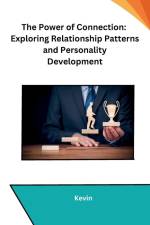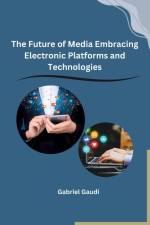av Allen Hill
345,-
Understanding the Role of Communication in BusinessEffective communication is an essential skill in today's fast-paced business environment. Whether you work in a small startup or a multinational corporation, the ability to convey ideas, share information, and collaborate with colleagues is crucial for success. In this subchapter, we will explore the importance of communication in the business environment and provide techniques for employees to improve their communication skills.Communication plays a pivotal role in every aspect of business. It is the foundation for building relationships, fostering teamwork, and ensuring that everyone is on the same page. In fact, studies have shown that organizations with strong communication practices are more likely to be successful and have higher employee engagement.One of the key benefits of effective communication is its ability to enhance productivity. When employees can clearly understand their roles, responsibilities, and objectives, they are more likely to perform at their best. Communication also facilitates the sharing of information, making it easier for employees to access the resources and knowledge they need to excel in their work.Furthermore, communication is vital for collaboration in today's interconnected business world. As businesses become increasingly global and teams are spread across different locations, effective communication becomes even more critical. By utilizing various communication channels, such as email, video conferencing, and instant messaging, employees can collaborate seamlessly, regardless of their physical location.Moreover, communication is not just about conveying information; it also plays a significant role in building strong relationships. When employees communicate effectively with their colleagues, superiors, and clients, trust is established, and stronger working relationships are formed. This, in turn, leads to increased job satisfaction, higher morale, and a more positive work environment.To improve communication skills in the business environment, employees can implement various techniques. Active listening, for example, is an essential aspect of effective communication. By giving full attention to the speaker, maintaining eye contact, and asking clarifying questions, employees can ensure that they understand the message accurately.Additionally, employees should practice clear and concise communication. Using simple language, organizing thoughts coherently, and avoiding jargon or technical terms can ensure that the message is easily understood by all stakeholders






























